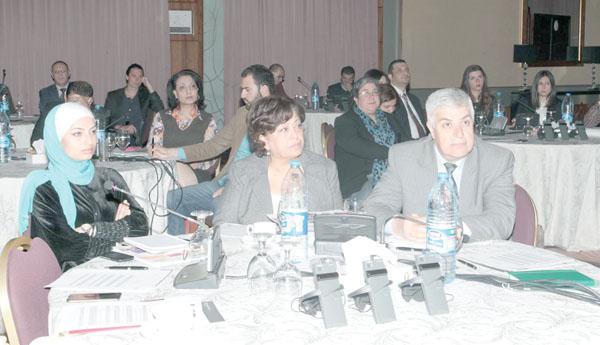You are here
Civil society, private sector urged to contribute to post-2015 global agenda
By Mohammad Ghazal - Jun 09,2014 - Last updated at Jun 09,2014
DEAD SEA — Academics and economists on Monday said civil society organisations and the private sector worldwide have a great opportunity at present to contribute to the Post-2015 Development Agenda.
“It is now the chance for civil society organisations across the globe to hold their governments accountable and engage in setting the goals of the agenda,” said Ravi Kanbur, professor of economics at Cornell University.
At a session during the International Economic Association’s 17th World Congress, participants reviewed progress in the development of the agenda, noting that consultations have so far covered some 5,000 civil societies globally.
Homi Kharas, a senior fellow and deputy director of the global economy and development programme at the Brookings Institute, said the agenda focuses on sustainable development, which is key to combating poverty worldwide.
National consultations on a post-2015 development agenda are under way in more than 70 countries.
The United Nations Development Group has organised a set of 11 thematic consultations, on conflict and fragility; education; environmental sustainability; governance; growth and employment; health; hunger, food and nutrition; inequalities; population dynamics; energy; and water.
Elsie S. Kanza, who is head of the Africa division at the World Economic Forum, said the private sector has a key role to assume in the formation of the agenda.
She noted that global discussions on the agenda have already included some 250 of the world’s largest companies.
Participants also stressed the importance of amending the taxation system, especially in the low- and mid-income countries as their main resources are domestic.
Such amendments will help in efforts to combat poverty, they said.
Discussions at the congress’ final day on Tuesday will focus on financial markets and products for the poor, agricultural productivity, and shared prosperity and growth.
Related Articles
A UN official on Monday urged local civil society organisations and young Jordanians to participate in designing and implementing the UN Post-2015 Development Agenda.
AMMAN — Young people play a crucial role in the shaping and implementation of the UN Post-2015 Development Agenda, experts and activists sai
Within the framework of the post-2015 consultations process in Jordan, a consultation on environmental sustainability was held on Monday under the leadership of the World Food Programme.













